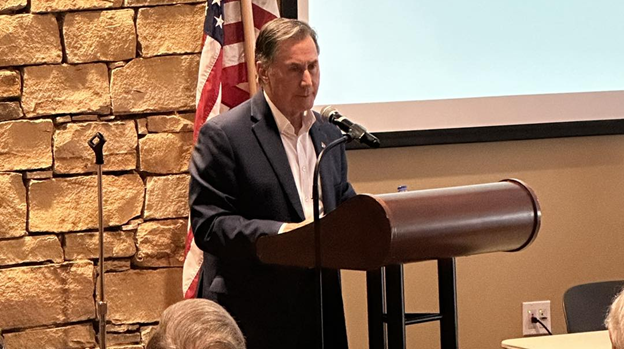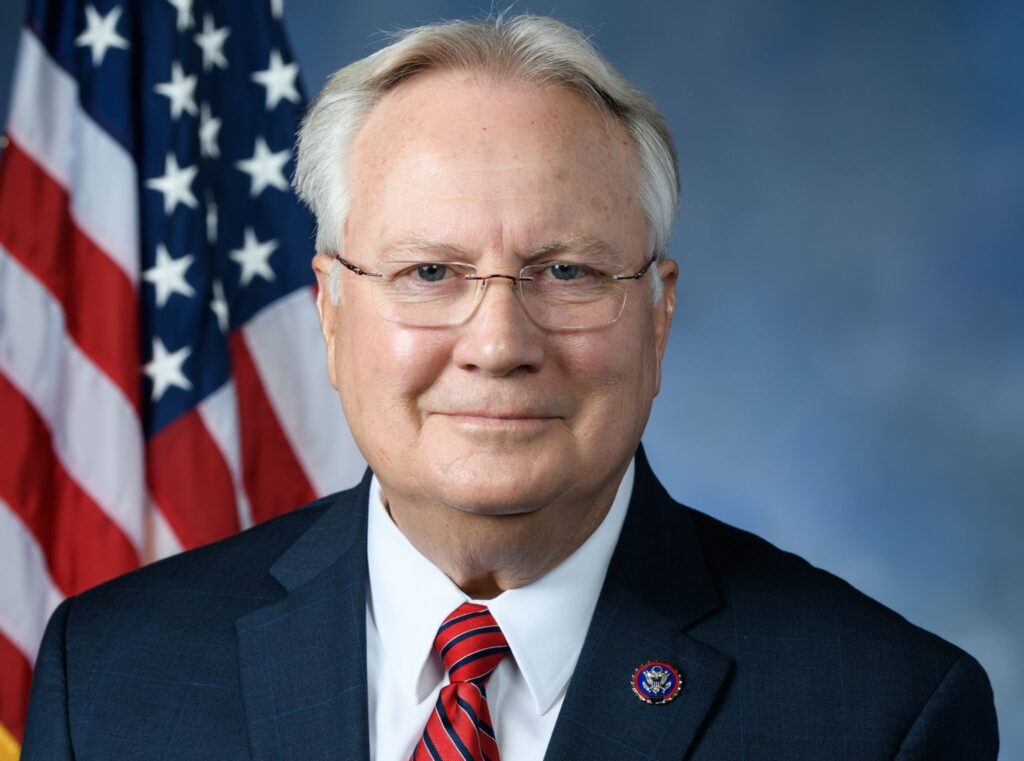Gary Palmer introduces bill to allow states to require proof of citizenship for voter registration

On Friday, Congressman Gary Palmer (R-AL06) reintroduced the Citizen Ballot Protection Act to promote election security. The legislation would allow states to require proof of citizenship for voters by amending the National Voter Registration Act (NVRA). “Restoring faith in the ability to conduct free and fair elections in this country begins with cleaning up voter rolls and requiring proof of citizenship to prevent illegally cast ballots from swaying elections,” said Rep. Palmer. “I introduced the Citizen Ballot Protection Act because Americans deserve to know their elections are secure. It is common sense that states should be able to require proof of citizenship to ensure only citizens are voting in their elections. Unfortunately, a 2013 Supreme Court ruling prevents states from requiring proof of citizenship to vote in federal elections. This bill will fix the problem by amending the National Voter Registration Act of 1993 to give states the ability to verify the citizenship status of their voters when they register.” Cosponsors of the Citizen Ballot Protection Act include Rep. Chuck Edwards (R-North Carolina), Rep. Andrew Clyde (R-Georgia), Rep. Randy K. Weber (R-Texas), Rep. Clay Higgins (R-Louisiana), Rep. Jeff Duncan (R-South Carolina), Rep. Dan Crenshaw (R-Texas), Rep. Mike Bost (R-Illinois), and Rep. Andy Biggs (R-Arizona). Palmer previously introduced this legislation in 2022. Palmer is concerned about the growing push to let non-citizens vote, especially in some liberal states where non-citizens are allowed to register. New York City even approved legislation allowing non-citizens to vote in local elections. That legislation was ruled unconstitutional by the New York Supreme Court. Many states are adding proof of citizenship requirements to strengthen voter roll integrity before someone can register to vote. However, this protection does not extend to voters that register through the National Voter Registration Act (NVRA) federal mail voter registration application form. This federal form is used to register to vote in federal elections, and the information collected by the form is listed in the NVRA. Because proof of citizenship is not listed as an option to add to the form, in Arizona v. Inter Tribal Council of Arizona, the Supreme Court held a state requirement to show proof of citizenship to register to vote in federal elections violates the NVRA. Without the proof of citizenship requirement, individuals must only attest under penalty of perjury that they are citizens. The Citizen Ballot Protection Act would amend the National Voter Registration Act to clarify that a state may impose a proof of citizenship requirement to register to vote in a federal election. The bill does not force states to require proof of citizenship but instead respects and upholds the role of states in administering federal elections. It merely gives states the option to add more security to their voter registration process. It helps states with proof of citizenship requirements streamline their registration process so that both their version of the federal mail voter registration form and the state’s regular voter registration form can have the same review process. State modifications to the federal mail voter registration form are reviewed by the U.S. Election Assistance Commission (EAC). The EAC and courts have begun interpreting the prohibition of notarized or other formal authentications as justification for denying states the ability to require documentary proof of citizenship with the federal mail voter registration form. In 2021, the United States District Court for the District of Columbia ruled that a previous 2016 EAC approval for Alabama, Georgia, and Kansas to include proof of citizenship violated the Administrative Procedures Act. The 10th Circuit issued a ruling in 2014 upholding EAC’s original rejection of Arizona and Kansas’ request that the federal form include documentary proof of citizenship. Gary Palmer is serving in his fifth term representing Alabama’s Sixth Congressional District. To connect with the author of this story or to comment, email brandonmreporter@gmail.com.
Jerry Carl supports bill to allow flexibility in spending COVID-19 funds

Congressman Jerry Carl announced he has co-sponsored a bipartisan bill to give state and local officials flexibility and time to spend the remainder of COVID-19 relief dollars. The State, Local, Tribal, and Territorial Fiscal Recovery, Infrastructure, and Disaster Relief Flexibility Act, introduced by Reps. Dusty Johnson and Carolyn Bourdeaux, aims to make various infrastructure investments eligible for payment with these funds. The legislation recently passed the U.S. Senate unanimously. Under the CARES Act, Congress did provide some flexibility for how COVID-19 funds could be spent, but the funds were not able to be used for infrastructure projects. This bill will give state and local officials additional flexibility and time to spend the remaining COVID-19 relief dollars responsibly. Carl supports the effort to add infrastructure spending as part of the COVID funding. Carl said in a statement, “South Alabama has a desperate need for investments in true infrastructure such as roads, bridges, ports, waterways, and broadband. As a former county commissioner, investing in our nation’s infrastructure is a top priority for me, so I’m proud to cosponsor this bipartisan bill to give states like Alabama the flexibility they need to spend unused COVID-19 relief dollars on critical investments in our nation’s infrastructure. “Unfortunately, Nancy Pelosi is holding the American people hostage by blocking this bill from being considered on the House floor. Despite passing the U.S. Senate unanimously and being introduced in the House by a large, bipartisan group, Nancy Pelosi is focused on raising our taxes, bankrupting America, and playing political games. It’s time to put the American people first and pass this bipartisan, commonsense bill.” South Dakota congressman Dusty Johnson posted on Twitter, “We need to cut the federal red tape. State governments need flexibility to administer remaining COVID-19 relief funds for critical infrastructure. Our bill would make that a reality & it’s already passed the Senate. Congress can get it done.” This legislation is cosponsored by Reps. Steve Scalise, Henry Cuellar, Rick Allen, Suzan DelBene, David Rouzer, Marilyn Strickland, Randy K. Weber, Jared Huffman, Steven Palazzo, Sanford D. Bishop, Jr., Andy Barr, Joseph Morelle, Dan Meuser, Albio Sires, Carlos A. Gimenez, Antonio Delgado, David B. McKinley, Kim Schrier, Peter Meijer, Darren Soto, Chris Pappas, Rick Crawford, Betty McCollum, William Timmons, Josh Gottheimer, Brad Wenstrup, Derek Kilmer, Don Young, and Tom O’Halleran.


